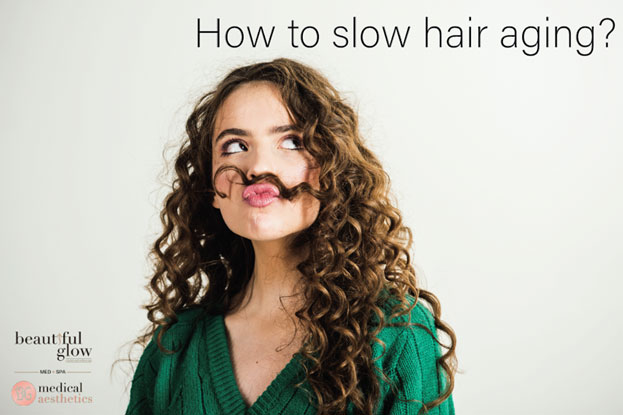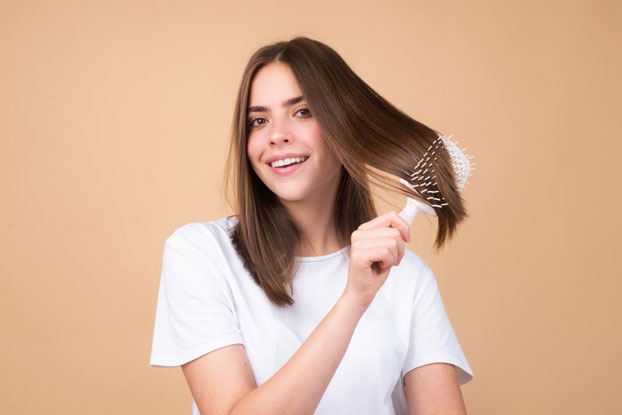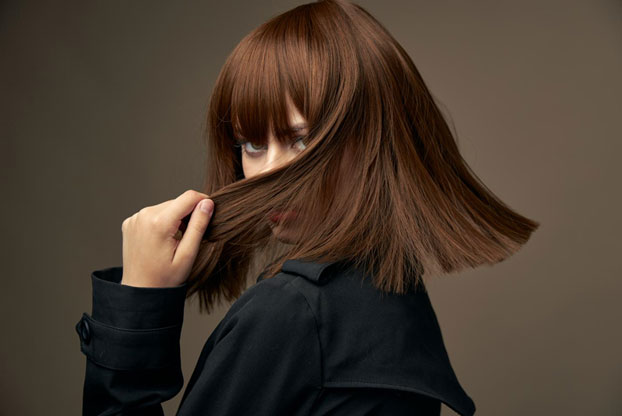
How does the aging of the hair manifest itself?
Once we reach the age of 50 or so, our hair undergoes a number of changes. Pigment cells become less effective and the production of keratin (the protein our hair is made of) and sebum (the natural oil that protects our hair) gradually decreases. What’s more, microcirculation in the scalp slows, which means that the nutrients responsible for hair growth are in shorter supply.
As a result, our hair turns gray or white, grows more slowly, loses its radiance, becomes brittle and thins out. In fact, hair density decreases by more than 20% from age 50 on, and hair growth slows by more than 10%.

What causes the aging of the hair?
In addition to internal triggers, like hormonal changes and genetics, there are several external causes such as:
- Environmental aggression (UV rays, pollution, etc.)
- Prolonged exposure to heated tools (hair dryers, curling irons, etc.)
- Coloring or bleaching treatments
- Brushing too forcefully
What can be done to counter the effects of aging?
- Supply hair with necessary fatty acids, vitamins, and minerals essential for growth
- Increase your hair’s ability to resist stress and protect it from external aggression.
- Prevent deterioration of hair cells

The ideal anti-aging routine…
It is important to use formulas that are rich in active nourishing, antioxidant ingredients, designed specifically to preserve the youthfulness of your hair.
- As often as you like, use a re-densifying shampoo that restores suppleness and softness to your weakened hair and preserves its growth cycle. You can also massage your scalp with your fingertips to stimulate microcirculation.
- After each wash, coat your hair with a protective formula to help shield against daily aggressors.
- A few times a week, apply a conditioner to boost the densifying action of your cleansing treatment and provide your hair with proper hydration.
